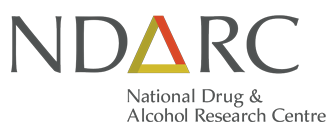01 September 2021

Shared decision making is the foundation of modern patient-centred care and is key to overcoming patient- and clinical-level barriers to opiate agonist therapy (OAT) uptake and retention in treatment. Newly available depot buprenorphine products offer expanded choice in treatment modality. However, as the effectiveness and cost-effectiveness of policy decisions may be compromised by patient preferences, an understanding of the effect of preference on patient outcomes is needed.
The PREFER study surveyed 400 people currently receiving OAT or taking opioids. Preferences for depot vs oral formulations as well as methadone were evaluated, along with the factors important to patients when considering alternative treatments, if given the option.
The ASCEND program grant (Advancing the health or people who use drugs: hepatitis C and drug dependence) is a collaboration between UNSW Sydney’s Kirby Institute and National Drug and Alcohol Research Centre (NDARC), funded by the National Health and Medical Research Centre.
Presenters:
Professor Rick Altice, Yale School of Public Health
Presentation title: The value of considering patient preference
Professor of Medicine (Infectious Diseases) and of Epidemiology (Microbial Diseases); Director, Clinical and Community Research; Director, HIV in Prisons Program; Director, Community Health Care Van; Academic Icon Professor of Medicine, University of Malaya-Centre of Excellence for Research in AIDS (CERiA)
Professor Jason Grebely, The Kirby Institute, UNSW Sydney
Presentation title: Patient preferences for opioid agonist treatment among people who regularly use opioids in Australia: The PREFER study.
Jason is Head of the Hepatitis C and Drug Use Group in the Viral Hepatitis Clinical Research Program at the Kirby Institute, UNSW Sydney.
Sione Crawford, CEO of Harm Reduction Australia
Presentation title: A community perspective on preference
Sione Crawford has been working in peer-based organisations of people who use drugs - for many years. He has living experience related to this work, including pharmacotherapy, and has spoken, written and presented in a variety of forums.
NDARC presentations
NDARC




